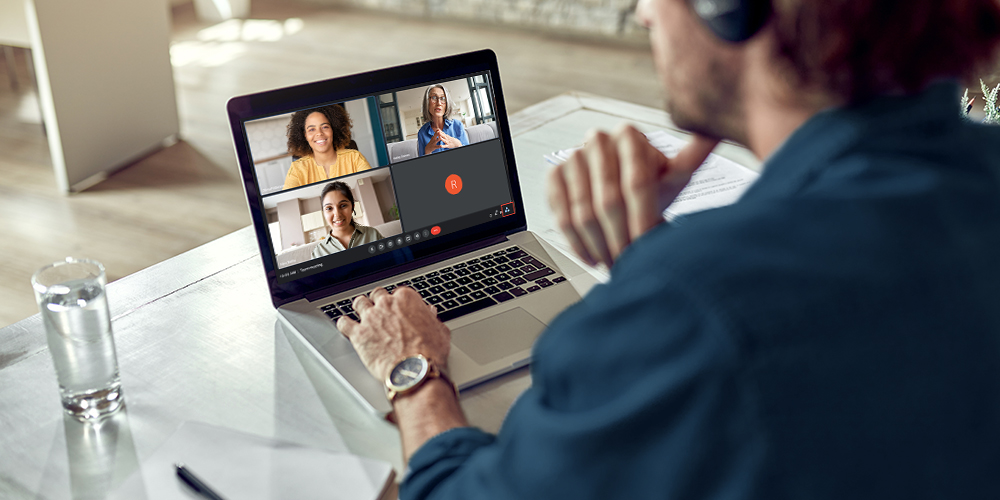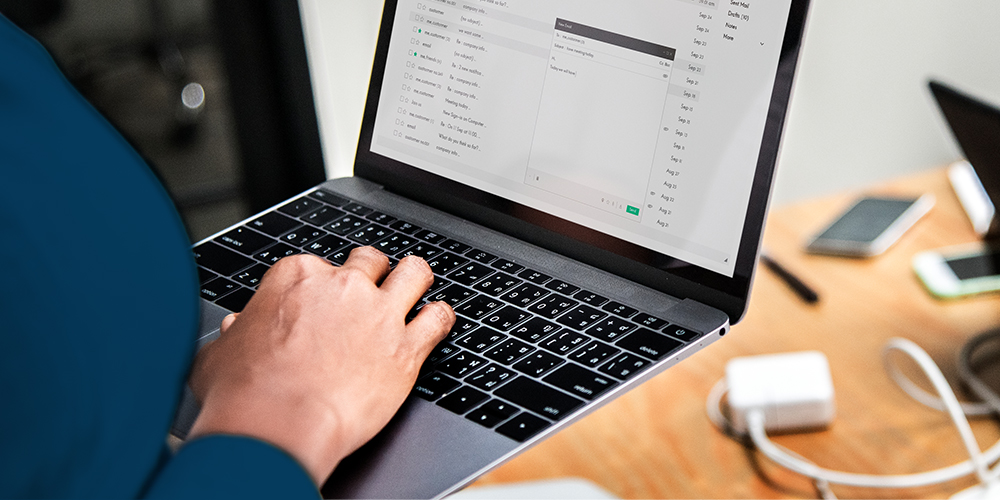
An interview is a formal and structured meeting between interviewers and interviewees. The objectives of any interview are to know the potentials, capabilities and requirements of both sides.
The first step to ace an interview is to prepare for it. But how to prepare for an interview? What are the do's and don'ts? If these are also your questions, Radviser, your intelligent adviser’s following article will give you everything you need to know.
How to Prepare for an Interview?
Preparing for an interview is not that easy. Still, the odds are that 80% of the applicants' success in an interview is determined by how prepared they appeared. What is preparation really? Being ready means having every detail about the company/university, interviewers, and industry/major. You need to do thorough research before an interview to consider your qualifications and the requirements. This is how to prepare for an interview properly. Let us look at the factors you need to be aware of before an interview.

Job Interview
Job interviews can be stressful and scary. Here we will tell you how to prepare for a job interview within a few easy steps.
1. Perform Research on the Company/Industry
Try to find valid information about the company's primary services, goals, major clients, competitors, past/current projects, strategic direction, history, identity, vision, and values. Having a thorough understanding of the company will help provide context for the interview and prepare for interviewers' questions.
Researching the service/product, market and competitors helps you think as a part of the team. Knowing about the company culture can give you an impression of its tone, personality, and value.
Learn about the industry you are about to enter. Look for major trends, geographic locations, environmental issues, technological advancement, economic/social factors, and key legislation.
2. Carefully Examine the Position
Read the job description carefully and make sure you are the perfect fit based on the requirement. This will help you be prepared for the questions about the position's responsibilities and ensure that you are qualified. Try to read reviews from individuals in a similar position. During the interview, ask about the details of the role. Search about the key responsibilities, skills, attributes, location, housing options, and amenities.
resume_1_light_banner
3. Consider the Interviewers
Interviewers will ask you detailed questions about your degrees, certifications, school attendance, career path, hobbies, and volunteer activities. Brainstorm the possible questions in these areas and prepare proper answers. Prepare a list of your strongest technical and soft skills, the top ten things you want the interviewers to know about you, and your resume. You must be ready to talk about anything mentioned in your resume, cover letter or reference letter.

University Interview
University interviews are often evaluative or informative. Evaluative interviews are for applicants and admission, and informative interviews are about the university and applicants knowing each other. A university interview may include both as well. Here is a list of tips on how to prepare for a university interview.
1. Revisit the University Prospectus and Course Details
Go through the course's exact details and other requirements and prepare yourself for any question related to these matters. You might be asked, "why this course?" or "why this university?" Try to go through probable questions. You need to know your stuff. Search about the latest issues, affairs, and news in your subject area. You should be able to demonstrate why you are interested in the course and university.
student_1_dark_banner
2. Re-familiar Yourself with Your Statement and Capabilities
You need to be completely prepared to discuss everything you mentioned in your statement, recommendation/reference letters, SoP, and application. This is why being honest in your statements is really important. If you mentioned a book, a movie or anything inspiring, you must be entirely familiar with it. Once you reread them, you can guess the questions that might come up. Take notes and review them occasionally.
3. Prepare Your Questions
In some cases knowing enough about a subject might raise other related questions. Try to have a clear mind about your questions. During a university interview, you can ask the interviewees about the course, university and the overview. Only ask the questions that are worth mentioning.

What to Wear to an Interview?
Your choice of interview attire will be viewed as an indicator of how professional or determined you are about getting the job or joining the course. To answer what to wear to an interview, knowing that being overdressed is much better than being considered too casual and sloppy.
Do not wait until the last minute to choose your interview clothes, and make them ready. Regardless of the type of interview, the first impression should always be a great one. But what to wear to an interview, really? We should stick to formal business attire. It is necessary to look neat, well-groomed, and tidy to present a positive image.
If you are going for a business suit, a natural color like navy blue, charcoal, gray, and black is good. Match it with a white or light blue shirt. This outfit will be complete with a quality tie and dress socks.
For women, pantsuits, skirts, and blazers are perfect. A blouse and a collared shirt are other great options. If you are wearing jewelry, it should be simple and not distracting. Neutral coloured hose and tights that match your shoes are the final touches. The skirt should be no shorter than 2 inches above the knee.
Do not get obsessed over your appearance. Try to dress comfortably. It is not about what to wear to an interview; it is all about showing the interviewers that you take the job/course seriously.

Before the Interview
If you have an online or phone interview, have a glass of water and give yourself a few minutes to relax and feel comfortable. If it is required to sign in to a platform, be on time.
If your interview is face-to-face, it is better to arrive at least 15 minutes early. This gives you time to relax. Introduce yourself professionally with your full name and inform who you are there to meet.
During the Interview
When the interview starts, greet the interviewers, be confident, and shake hands with a smile. Eye contact is a great way to make an impression. During the interview, try to maintain your energy and have appropriate amounts of eye contact. Your body language should be neutral and attentive. Sit up straight and avoid leaning back, yawning or crossing arms.
Do not interrupt the interviewees. Listen carefully, pause, think for a few seconds, and then answer clearly. Explain your answers with relevant examples. If you are not sure about a question, paraphrase it back to them to understand it precisely. Once you have the opportunity, link your skills, knowledge and experiences to the role/course or position you are interviewing for. Asking follow-up questions in some cases will reinforce your interests.
Your interview language must be proper and formal. Avoid jargon, slang, and emotional speech habits. Keep the tone positive and never complain about the former university, teacher, company, or manager.

Different Types of Interviews
Preparing for interviews can be both exciting and nerve-wracking as it represents an opportunity to showcase your skills, experiences, and suitability for a role. Whether you're facing traditional, behavioral, or technical interview questions, each type serves a distinct purpose in evaluating your candidacy.
Traditional interviews delve into your background, strengths, weaknesses, and aspirations, aiming to assess your fit within the organization.
On the other hand, behavioral questions probe into your past experiences and actions, providing insight into your work ethic, problem-solving abilities, and interpersonal skills.
Lastly, technical interviews scrutinize your knowledge, proficiency, and practical application of technical concepts relevant to the role. As you prepare for your interviews, remember to approach each question with confidence, honesty, and a willingness to demonstrate your capabilities effectively. Let us take a closer look at each of these types of interviews.

Traditional Interview Questions
These questions are considered a bit hard. While answering them, try to avoid negativity and placing blame on others. Emphasize the lessons you have learned and the skills you have gained.
Answer these questions honestly and confidently. Identify your strengths and weaknesses. And let the interviewers know that you are aware of them and can overcome them. Let them know you will do great in the course/job.
Traditional questions are for breaking the ice and getting to know you. Do not mistake them for casual conversation. This is where you are allowed to establish a connection and make an impression. These questions should be answered positively with a strong attitude. The interviewers aim to find out whether you are a good fit or not. Your answers should be short and right to the point.
In a mock interview, try to find the right answers to these types of questions. Ask yourself what your qualifications are? Why should they choose you? What are your interests? Or would you be able to succeed?
The salary question should give a range and let them know why you choose this range. Let the interviewers know you are open to discussing.
Interviewers want to know you are a team player with effective skills and capabilities. They want to make sure you are a problem-solver with strong analytical skills. They want to know you will do your best and perform exceptionally. They want you to guarantee that you are a hard worker with ambition and dreams. They expect you to be able to plan, organize, create and contribute to the team. So give them what they want. The questions below will help you prepare for an interview.
About You
- What do you think of this course/position?
- Talk about yourself.
- How would your experience be a good fit here?
- What are your strengths and weaknesses?
- What is success?
- What keeps you motivated?
- When did you feel most successful? Why?
- Do you prefer to work alone or in a team?
- What is your ideal work/education environment?
- When are you ready to start?
- What are your salary expectations?
- Why do you want to go to college?
- What do you do for fun?
- What makes you unique?
Your Knowledge of the Company
- What do you know about the company/university?
- Why do you want to work/study here?
- How are you going to contribute to the university/company?
- What do you know about the competitors?
Your Future Aspiration
- What is a perfect job/class?
- What other universities/companies are you considering?
- Where do you see yourself in two to five years?
- What are your long-term career/educational objectives?
- Why did you choose to pursue a course/career in this field?
- Who do you admire and why?
Education and Experience
- Why did you choose your school/course?
- How did your education prepare you for this course/position?
- What is your favorite/least favorite class?
- What experience did you acquire from your previous work?
- How much training do you think you need?

Behavioral Interview Questions
While answering the technical questions, it is crucial to communicate the thought process used to get to the answers. Do not go straight to the answers; take the interviewers through the logic of your assumptions.
Experience
- Describe your significant achievement or project.
- What was the most complicated assignment you have had? How did you face it?
- Explain how you would convert technical skills into a practical application?
Work Ethic
- Describe a situation in which you understand that your results were not up to your professor's or supervisor's expectations. What happened then?
- Describe a complex situation, but you try to keep a positive attitude.
- Describe a situation where you went above and beyond to accomplish your goal.
Conflict Resolution
- Convince us that you can adapt to different situations, environments and people.
- Describe a project where your team members disagree with your ideas.
- How would you convince someone to do the job without using the power? Bring an example.
- Describe a time when you had to work with a colleague/classmate you did not like. What was the result?
- Describe a situation when you found yourself desperately in need of help.
- Describe a conflict you faced at work/school.
Decision Making/Problem-Solving Skills
- Give us an example of a time you had to make a difficult decision.
- What was the biggest problem you solved?
- Describe a moment when you failed at something and what happened afterward.
- With an example, convince us you have above-average analytical skills.
Communication Skills
- Describe a moment when you felt you did not communicate well.
- Describe the projects that succeeded in your efforts.
- What would happen if a project required you to do different things at the same time?
- Do you describe yourself as an active listener?
- What will you do if your professor/supervisor cannot correctly communicate with you?

Technical Interview Questions
Technical interview questions are designed to assess your knowledge and skills in a specific field, such as engineering, computer science, or finance. These questions often require problem-solving abilities, critical thinking, and a deep understanding of the subject matter. Here are some common types of technical interview questions and examples:
Problem-Solving
- Describe a technical problem you encountered in a previous project or role and how you resolved it.
- Walk us through your approach to troubleshooting a complex technical issue.
- How would you optimize the performance of a database/application/system?
Coding/Programming
- Write a function to reverse a string/array.
- Implement an algorithm to find the shortest path in a graph.
- Explain the difference between stack and queue data structures and provide examples of when each is used.
System Design
- Design a scalable architecture for a social media platform.
- Discuss the components and interactions of a distributed system.
- How would you design a database schema for a customer relationship management (CRM) system?
Programming
- Explain the principles of object-oriented programming (OOP).
- Describe the difference between HTTP and HTTPS protocols.
- What are the advantages and disadvantages of relational and NoSQL databases?
Data Analysis
- How would you clean and preprocess a dataset for analysis?
- What statistical methods would you use to analyze trends in sales data?
- Discuss the steps involved in conducting a hypothesis test.
Domain-Specific
- For software engineers: Explain the principles of object-relational mapping (ORM) and its advantages.
- For mechanical engineers: Describe the process of stress analysis in structural engineering.
- For financial analysts: How would you evaluate the risk of an investment portfolio?
Technical Projects
- Describe a technical project you completed independently or as part of a team.
- What tools and technologies did you use in your recent technical projects?
- Walk us through the architecture and implementation of a project listed on your resume.
These technical interview questions aim to evaluate your technical proficiency, problem-solving abilities, and familiarity with relevant tools and technologies. Prepare for technical interviews by reviewing fundamental concepts, practicing coding exercises, and discussing your technical projects and experiences in depth.
Questions You Can Ask
In a job interview, you can find out whether the role is right for you or not. You can ask about the biggest challenge of this position, the responsibilities, organizational culture, communication/leadership style, and career path.
In a university interview, you can ask about the course, technical methods, expectations for each year, and tips on succeeding in this course.
Finishing up the Interview
Try to remember the top ten things you wanted the interviewers to know about you, and if all were not covered, mention them. Ask about the other steps in the hiring/admission process and the timeline for the decisions. Ask for the contact information of the interviewees for further follow-up questions. Thank the interviewers for their patience, interest and time.

What Is Next?
After the interview, keep calm and reflect on your performance. Try to keep notes if more interviews are coming up. Write down the areas you need to work on, the questions you have already been asked, and what went well.
You can send the interviewer a thank-you note or email. Contact your references and tell them who might contact them for reference and explain the position and details. The rest is not in your hand, so sit back and wait.
Still do not know how to prepare for an interview? Go through our Library and check out Radviser's best guides to make sure you know everything. Sign up and let us help you with every question you might have; we would love to hear from you.













